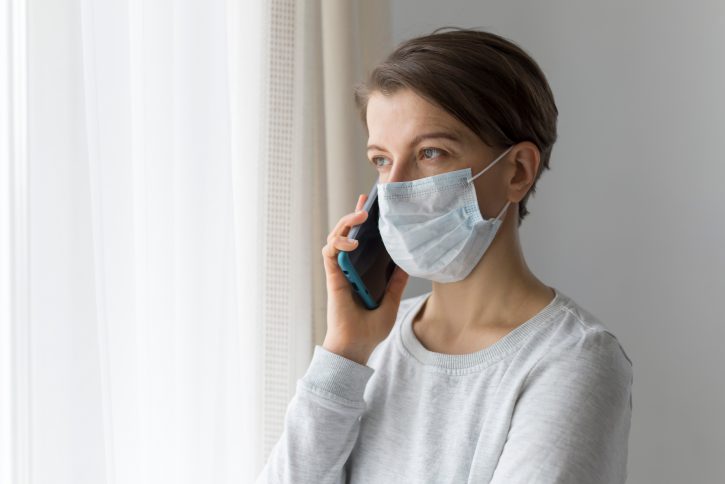
Article originally published February 1, 2021.
It’s a scenario many Americans have faced or will potentially face in the coming months: You wake up feeling sick, you go to get tested and the results come back positive. You have COVID-19, and there is a possibility you may have unknowingly spread it to other people. How do you tell them the news?
It’s a difficult conversation, but for the safety of everyone involved, it needs to happen – and quickly. Withholding your diagnosis could harm your relationships and potentially put others at risk.
Below are some tips to help you through the process:
- Retrace your steps and make a list of anyone you were in close contact with (masked or unmasked) for more than 15 minutes in the 48 hours before symptoms or a positive test. This includes any businesses you may have visited during that time.
- If you live with other people, let them know about your diagnosis right away and find a place within your residence where you can quarantine. If the people you live with work outside the home, or if you have children who are in school or daycare, make sure those establishments are notified.
- Call your close contacts, or send them a text or email. If you chose to notify them electronically, follow up with anyone who doesn’t respond back within a short time frame – it’s possible that your email or text didn’t go through or was overlooked.
- Keep the message simple and avoid lengthy explanations. Be prepared for different reactions – some people may be understanding and supportive, while others may react with fear or even anger. If you receive a negative reaction from someone, be sympathetic, not defensive. Remind each person you speak with to quarantine and get tested.
Many people who are diagnosed with COVID-19 may experience feelings of guilt, anxiety or fear around the thought of inadvertently spreading the virus to others. These feelings are natural, and it is important to recognize and manage them in order to protect your mental health.
Each person will have a different reaction to a COVID-19 diagnosis, but below are a few tips for handling stress and processing your feelings.
- Acknowledge and accept your situation and how you feel. Try to stay focused on the present and things that you are able to control – not the feelings or reactions of others.
- Take care of your physical health. While most people will recover from COVID-19 at home, it is important to know how to care for yourself and when to seek medical attention. Click here to read more.
- Take a mental break. Make time to unwind by disconnecting from the news and social media and focusing on something you enjoy doing.
- Connect with others. Share your feelings and concerns with a trusted person in your support system. Be honest about what you are experiencing.
- Seek help if you need it. If your mental distress is affecting your daily life, contact a mental health professional.
A COVID-19 diagnosis can be challenging on many levels – it is important that you not only monitor your physical health, but also take care of your mental and emotional health. If you have concerns about your COVID-19 symptoms, contact your primary care provider. If you would like to speak with someone about your mental or emotional health, contact a mental health professional.